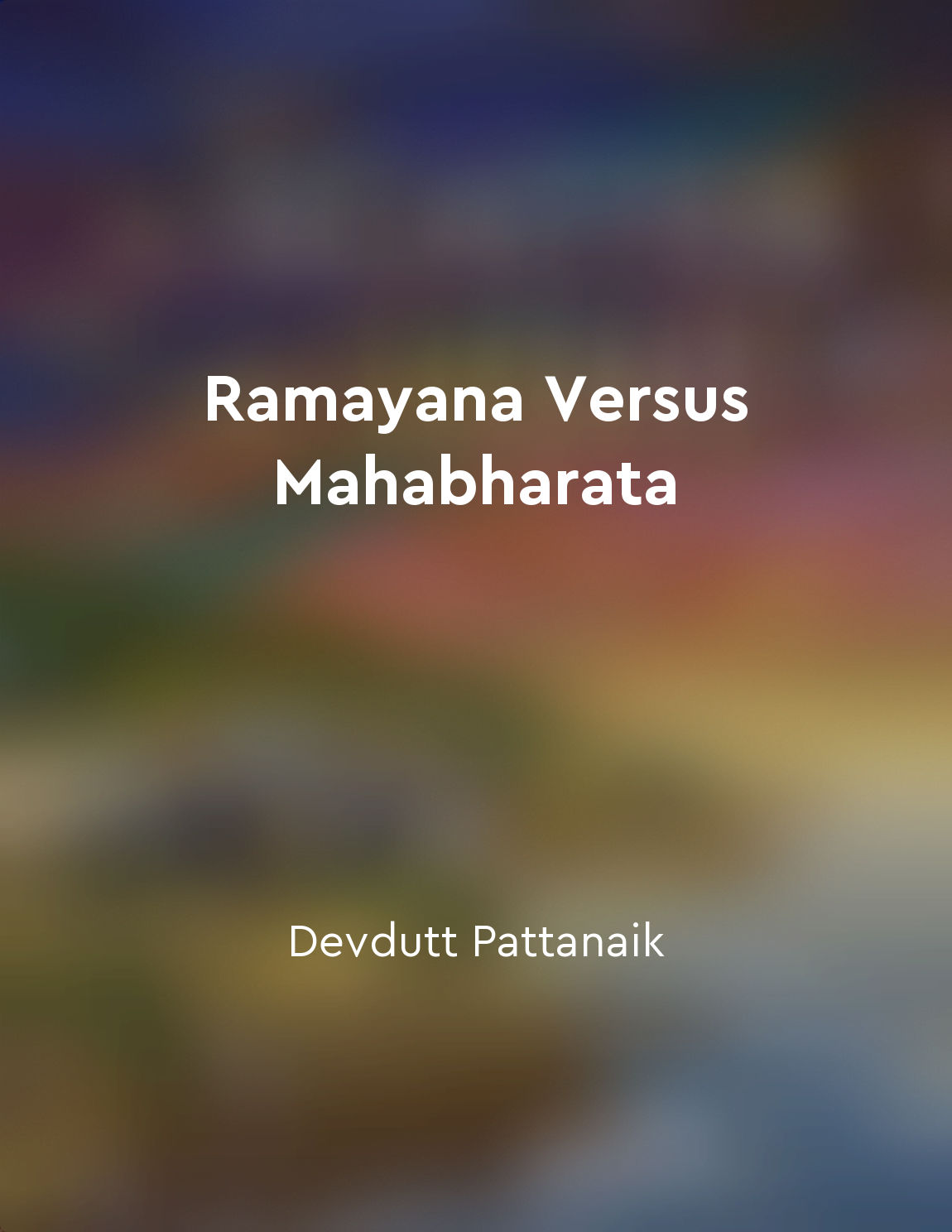Ramayana's Agastya is wise, Mahabharata's Bhishma is selfless from "summary" of Ramayana Versus Mahabharata by Devdutt Pattanaik
In the Ramayana, Agastya is portrayed as a wise sage who is respected by all for his knowledge and guidance. He is seen as a mentor figure, offering valuable insights and advice to the characters in the epic. Agastya's wisdom is evident in his actions and words, as he navigates through various challenges with grace and intelligence. On the other hand, in the Mahabharata, Bhishma is depicted as a selfless warrior who prioritizes the well-being of others above his own desires. Despite his personal struggles and sacrifices, Bhishma remains committed to upholding his duties and responsibilities towards his family and kingdom. His selflessness is a defining trait that sets him apart from other characters in the epic. Both Agastya and Bhishma serve as role models for the readers, embodying values such as wisdom and selflessness that are essential for leading a fulfilling and virtuous life. Their actions and decisions resonate with the audience, inspiring them to reflect on their own beliefs and principles. Through their stories, the epics convey important moral lessons that continue to be relevant in today's world.- The contrast between Agastya's wisdom and Bhishma's selflessness highlights the diverse range of virtues and qualities that are celebrated in Indian mythology. By exploring these characters and their attributes, readers gain a deeper understanding of the complexities of human nature and the importance of moral integrity in one's journey through life.
Similar Posts
Shiva uncovers ancient secrets that will shape the future of Meluha
In the heart of Meluha, amidst the serene waters of the Mansarovar Lake, Shiva stumbled upon ancient secrets that had long been...
Embracing the hidden wisdom of Hindu teachings
The profound teachings of Hinduism hold within them a treasure trove of wisdom that remains largely unexplored by many. This an...
Hinduism, Buddhism, Jainism, and Sikhism are major religions of India
These four religions have played a significant role in shaping the religious landscape of India. Hinduism, the oldest of the re...
Readers can deepen their understanding of the Geeta through this book
This book serves as a valuable guide for readers seeking to enhance their comprehension of the Geeta. By providing the original...
Overcoming desire and attachment
The wise man lets go of all desires. By doing so, he finds inner peace and contentment. He is not attached to the fruits of his...
The reign of Kingdoms marked the later Vedic Period
The later Vedic Period is distinguished by the emergence of kingdoms in ancient India. This period saw the rise of powerful pol...
Finding balance in life
In the midst of life’s challenges and responsibilities, it is essential to find equilibrium. Just as a skilled archer must bala...
The concept of moksha represents liberation from the cycle of rebirth
The concept of moksha is central to the religious beliefs of India. It is believed that through moksha, one can attain liberati...

Ram's journey to the forest with Sita and Lakshman
Ram, accompanied by his wife Sita and his devoted brother Lakshman, embarked on a journey to the forest. The decision to leave ...

The nature of good and evil
The nature of good and evil is a complex and profound theme that runs through the epic tale of The Mahabharata. It delves into ...


